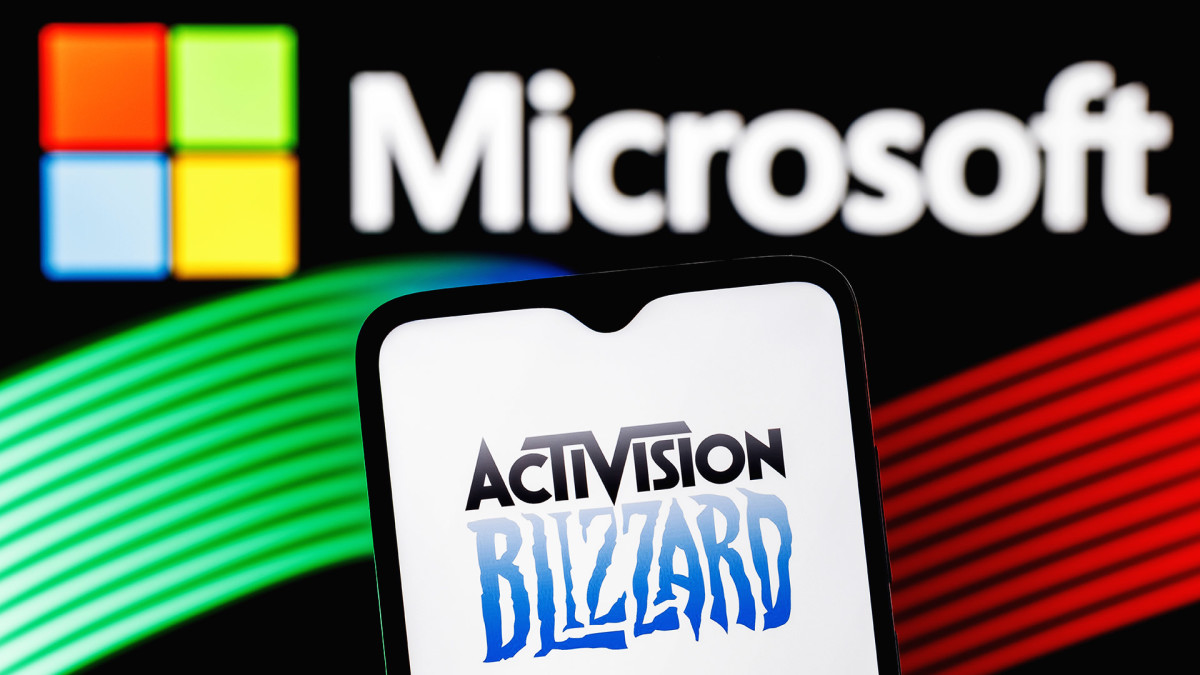
The big freeze is over.
Back in April, Microsoft (MSFT) -) got a decidedly chilly reception from British regulators regarding the software giant's $75 billion acquisition of video game maker Activision Blizzard.
Related: Tesla stock slips as the electric vehicle leader faces a big new problem
The U.K.'s Competition and Markets Authority (CMA) said the proposed acquisition, which was unveiled early last year, would "alter the future of the fast-growing cloud gaming market" and stunt innovation and limit choice for gamers over the coming years.
Things seemed to thaw a bit last month when the authority, which had originally asked Microsoft to sell the "Call of Duty" franchise, said tweaks made to the company's proposal over the summer "opens the door" to approval following the rare decision to re-examine the deal.
Microsoft agreed to sell Activision's non-European streaming rights to all current and future video game releases to France-based rival Ubisoft Entertainment, with remedies to ensure the terms were enforceable.
The authority said the sale "will prevent the distribution of important, popular content – including games such as "Overwatch" and "World of Warcraft" – from coming under the control of Microsoft in relation to cloud gaming."
Agency says it 'stuck to its guns'
"We delivered a clear message to Microsoft that the deal would be blocked unless they comprehensively addressed our concerns and stuck to our guns on that,” Sarah Cardell, the authority's chief executive said in a statement.
With the sale of Activision’s cloud streaming rights to Ubisoft, Cardell said, "we’ve made sure Microsoft can’t have a stranglehold over this important and rapidly developing market."
"As cloud gaming grows, this intervention will ensure people get more competitive prices, better services and more choice," she said. "We are the only competition agency globally to have delivered this outcome."
Cardell criticized the software giant, charging that the tactics "employed by Microsoft are no way to engage with the CMA."
"Microsoft had the chance to restructure during our initial investigation but instead continued to insist on a package of measures that we told them simply wouldn’t work," she said. "Dragging out proceedings in this way only wastes time and money."
Microsoft did not directly address Cardell's complaints, but said in an email that "today is a good day to play as we welcome the legendary teams at Activision Blizzard to Team Xbox."
"We have now crossed the final regulatory hurdle to close this acquisition, which we believe will benefit players and the gaming industry worldwide," Vice Chair and President Brad Smith said, according to Reuters.
Other legal hurdles
Activision Blizzard said: "The CMA's official approval is great news for our future with Microsoft, and we look forward to becoming part of the Xbox Team."
Microsoft has not fully satisfied regulators, the New York Times noted, and it is taking a calculated risk that it will not be forced to unwind the acquisition years down the line. A Federal Trade Commission case against the combination is still pending in its administrative court, in a process that can take years to resolve.
The FTC said last month that it plans to restart an in-house trial against Microsoft over the acquisition after the Ninth Circuit issues an opinion regarding the agency’s appeal of an earlier U.S. District Judge’s ruling in Microsoft’s favor.
The European Commission gave the green light in May when it accepted Microsoft's commitments to license Activision's games like "Overwatch" and "World of Warcraft" to other platforms.
Separately, the Internal Revenue Service says Microsoft owes the U.S. Treasury $28.9 billion in back taxes, plus penalties and interest, the company revealed in a securities filing on Oct. 12.
The figure, which Microsoft disputes, stems from a long-running IRS probe into how Microsoft allocated its profits among countries and jurisdictions in the years 2004 to 2013.
Action Alerts PLUS offers expert portfolio guidance to help you make informed investing decisions. Sign up now.







